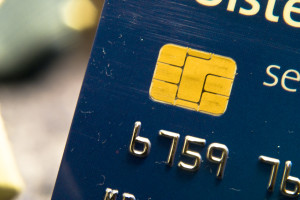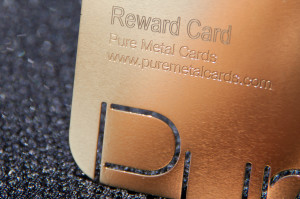June 9th, 2014 by Elma Jane
Some American banks and financial institutions, like JPMorgan Chase, American Express and Citi, have already issued credit cards with new security technology. Other banks will do so by the end of the year. Often referred to as E.M.V. (short for Europay, MasterCard and Visa) or chip-and-PIN, these new cards use a combination of an embedded microchip and a personal numeric code to authorize payment transactions. Depending on the card issuer, some cards may have the chip but require just the old-fashioned signature instead of a PIN.
Most traditional credit cards in the United States today use a magnetic strip and a customer signature to seal a deal. The information embedded in the stripe can be easily cloned, however, and signatures can be forged. The chips in the newer E.M.V. cards which encode account information when transferring it to the merchant are harder to duplicate. The PIN must be entered for each charge, which helps make the cards more secure for in-person purchases. The cards are not infallible, though, criminals have still found ways to steal PINs and make fraudulent online purchases.
With new types of credit cards come new payment terminals, and many retailers must upgrade their equipment to make it compatible with E.M.V. cards. Instead of a slot to swipe the strip, the new credit card terminals typically need a chip reader. Most merchants will probably have the new equipment in place by October 2015, when new rules about fraud liability kick in. Under these rules, the bank or the merchant could be held accountable for any fraudulent charges if one of them has not upgraded to the new system. The party with the weaker security measures must pay.
Posted in Best Practices for Merchants, Credit card Processing, Credit Card Reader Terminal, Credit Card Security, EMV EuroPay MasterCard Visa, Visa MasterCard American Express Tagged with: account information, American banks, American Express, card issuer, cards, chip, Chip and PIN, chip reader, Citi, credit card terminals, credit cards, E.M.V., embedded microchip, EuroPay, financial institutions, fraud liability, JPMorgan Chase, magnetic strip, MasterCard, merchant, numeric code, payment terminals, payment transactions, PIN, Security, visa
December 12th, 2013 by Elma Jane
The Consumer Financial Protection Bureau is reviewing whether credit card rewards program are misleading to credit card users.
Results of the review may be new. Strict rules about the transparency of rewards programs, including details about cash back offers, mileage awards and how these rewards must be redeemed.
In an email to Bloomberg News, CFPB Director Richard Cordray said, we will be reviewing whether rewards disclosures are being made in a clear and transparent manner, and we will consider whether additional protections are needed.
Credit card issuers like American Express, Bank of America, Chase, Citi and Discover rely on rewards programs to attract new customers as well as increasing the use of their cards by existing cardholders. Rewards are the No. 1 reason why customers select the card, and there’s almost a battle to provide the highest rewards.
What we’ve learned over time is, our best customers value rewards. Their spend behaviour changes based on rewards, said Edward Gilligan, the President of American Express.
The CFPB’s restrictions could put a damper on each company’s ability to draw in new cardholders.
While there are no apparently abuse issues with rewards programs at this time, the CFPB is taking the initiative to catch a problem before it happens.
Keep an eye out for notices from your credit card issuer about changes in your rewards program. Changes, or at least clarifications, could come as a result of this examination.
Posted in Gift & Loyalty Card Processing, Visa MasterCard American Express Tagged with: American Express, Bank of America, cardholders, Chase, Citi, consumer, credit-card, Discover, financial, issuer, protection, rewards

